Reprinted with permission from The Christian Science Monitor
Thanksgiving gathers us in gratitude. But what about the holiday’s on-call workers? With patience and skill, they sacrifice their holidays to rescue ours.
NOVEMBER 26, 2019 - BOSTON - Like you and me – not to mention countless restaurant managers, airport logistics personnel, and the Dallas Cowboys – Ken Reef doesn’t just show up cold for Thanksgiving Day. He plans for it. He prepares. He pregames.
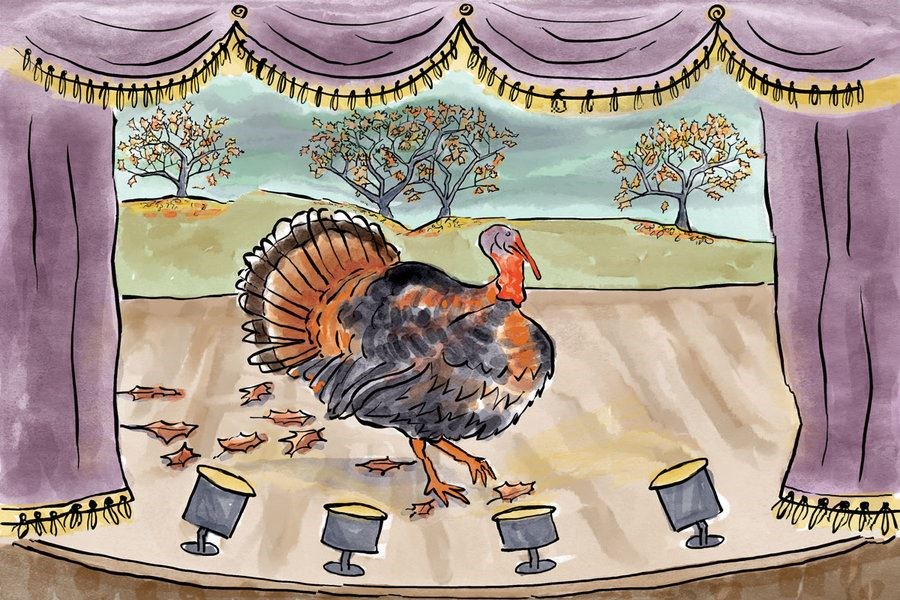 Karen Norris/StaffKaren Norris/StaffUnlike you and me, however, Mr. Reef’s preparations don’t involve boning up on recipes or vacuuming the guest bedroom. What Mr. Reef is doing in advance of Thanksgiving is buying water heaters. Lots of them. He knows he’ll need them because he knows we’ll need them – more of us than would like. And Mr. Reef’s job will be to get them into emergency service before our visiting in-laws step into cold showers. Of course, those appliances will be the least of Mr. Reef’s Thanksgiving workload, because Mr. Reef is a plumber. And for plumbers, Thanksgiving is Armageddon.
Karen Norris/StaffKaren Norris/StaffUnlike you and me, however, Mr. Reef’s preparations don’t involve boning up on recipes or vacuuming the guest bedroom. What Mr. Reef is doing in advance of Thanksgiving is buying water heaters. Lots of them. He knows he’ll need them because he knows we’ll need them – more of us than would like. And Mr. Reef’s job will be to get them into emergency service before our visiting in-laws step into cold showers. Of course, those appliances will be the least of Mr. Reef’s Thanksgiving workload, because Mr. Reef is a plumber. And for plumbers, Thanksgiving is Armageddon.
“Actually, Thanksgiving Day itself starts a little slow,” says Mr. Reef, a 20-year drain-service veteran in Colorado Springs, Colorado, “but by noon things really start kicking off. And the afternoon and evening can be crazy. And then there’s Friday, our busiest day all year. It’s Black Friday to you. To us? Make that ‘Brown Friday.’ Sorry. But there are disasters.”
Such as?
“Well, you know the famous one about the turkey in the trap?”
Not that kind of trap. Turns out he’s referring to “a case out of Kansas City,” which has become lore in the plumbing trade. Evidently a local firm was called to the home of an older woman because her toilet had jammed, and now there was the worst kind of flood. Not a problem, said the plumber in question, nothing we can’t handle.
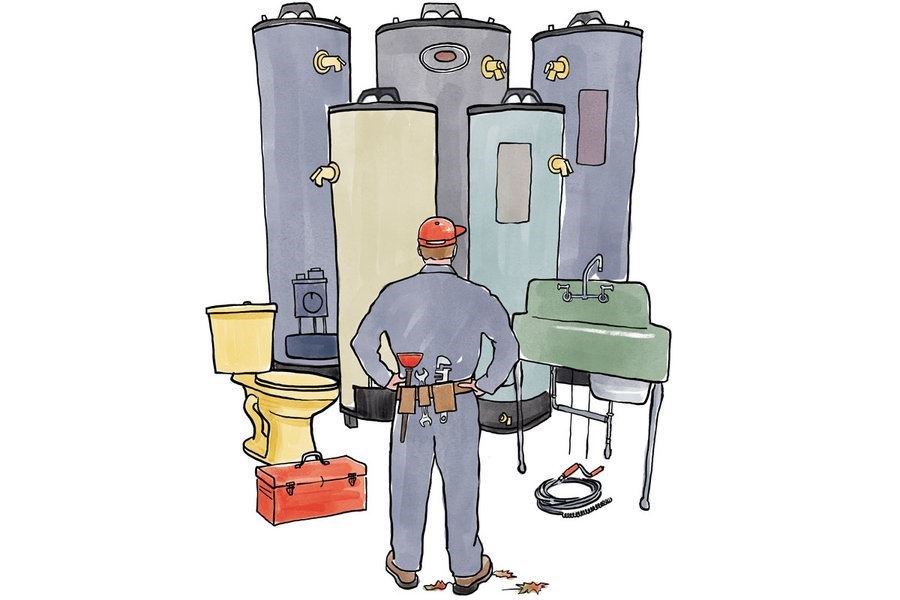 Karen Norris/StaffKaren Norris/StaffBut the typical handling didn’t work. The plungers, the mechanical snakes. The plumber deduced that something was stuck in the toilet’s trap – something big. So he removed the stool to access the trap ... and found an entire turkey carcass inside. (“Hard to do,” noted Mr. Reef.) The client had tried to flush her Thanksgiving remains down the toilet. “Why did you do that?” asked the plumber when the excavation was done.
Karen Norris/StaffKaren Norris/StaffBut the typical handling didn’t work. The plungers, the mechanical snakes. The plumber deduced that something was stuck in the toilet’s trap – something big. So he removed the stool to access the trap ... and found an entire turkey carcass inside. (“Hard to do,” noted Mr. Reef.) The client had tried to flush her Thanksgiving remains down the toilet. “Why did you do that?” asked the plumber when the excavation was done.
“Well,” she said, “I don’t have a garbage disposal.”
Naturally.
Mr. Reef hastens to point out that most of his challenges are more prosaic than that – your usual backups in sinks, sewer lines, and dishwashers. Plus those water heater breakdowns for which he stocks up. All of it the “logical result” of a holiday that’s like any other day, he says, only more so. More people, more food, more overload, more waste, more mistakes. (We’ll come back to those mistakes.) “Thanksgiving is long, but that’s what we’re here for, all hands on deck,” he says, in an almost relishing tone.
“It’s nothing we can’t handle.”
Easy for Mr. Reef to say.
But let’s pause a moment to pay tribute to – nay, to give thanks for – the fact that he says it. Along with the fact that a lot of other people say it, too, while they spend Thanksgiving not at home but on the job. “Nothing we can’t handle.” Because without them, the Thanksgivings most of us enjoy might not quite be possible.
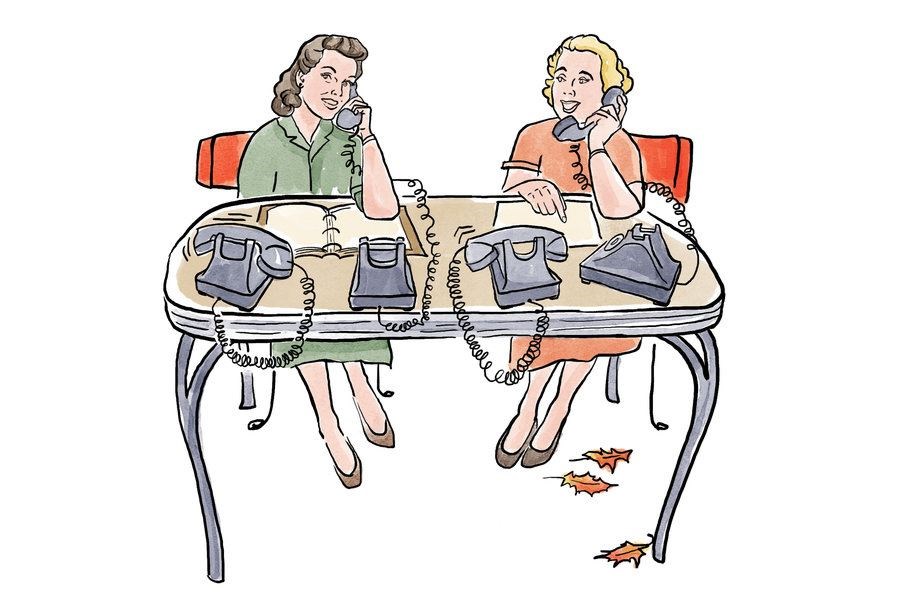 Karen Norris/StaffKaren Norris/StaffOverstatement? Surveys have shown that as many as 40% of businesses require at least some employees to work on Thanksgiving. And though there are no good data for the exact number of people who clock in on that day, an Allstate/National Journal survey from 2014 revealed that fully 25% of American workers are required to work on either Thanksgiving Day, Christmas Day, or New Year’s Day.
Karen Norris/StaffKaren Norris/StaffOverstatement? Surveys have shown that as many as 40% of businesses require at least some employees to work on Thanksgiving. And though there are no good data for the exact number of people who clock in on that day, an Allstate/National Journal survey from 2014 revealed that fully 25% of American workers are required to work on either Thanksgiving Day, Christmas Day, or New Year’s Day.
When you stop to look around, it’s not hard to see the massive shadow workforce undergirding our Thanksgiving rituals of visiting and hosting and eating and celebrating. Much of the public sector stays lit – law enforcement, firefighters, utility departments, emergency crews. And so do airlines, bus services, freight shippers, railroads, and more and more retailers that open their stores not only on Black Friday but on Thanksgiving Day, as well.
Also doing business as usual or better: gas stations, gyms, convenience stores, media outlets (somebody’s gotta comment on all that football), and restaurants. At the national restaurant chain Cracker Barrel, Thanksgiving Day is the busiest day of the year. Many Starbucks are open, of course. And so is Disney World.
And then there is the entire health care industry, which hums steadily through every holiday but which registers a Thanksgiving-specific spike. Hospital emergency room visits on Thanksgiving have been reported to exceed the norm by 10% in Lubbock, Texas; by 12% in New York; and by 15% in Kansas City. Causes? People eat wrong, drink too much, sleep too little, and play far too much touch football while in something less than game shape. Lubbock ER doctor James Williams even attributed some of the patient uptick to the kickoff of Christmas-decorating season – the hanging of the lights, as he told an interviewer – a source of mishaps that the U.S. Consumer Product Safety Commission confirms. The lesson, as always: We are not as good on ladders as we think.
Every one of those people – from the baggage handlers to the baristas to the busboys – help make our Thanksgivings possible. So here’s to them all. Maybe a little extra in the tip jar wouldn’t hurt.
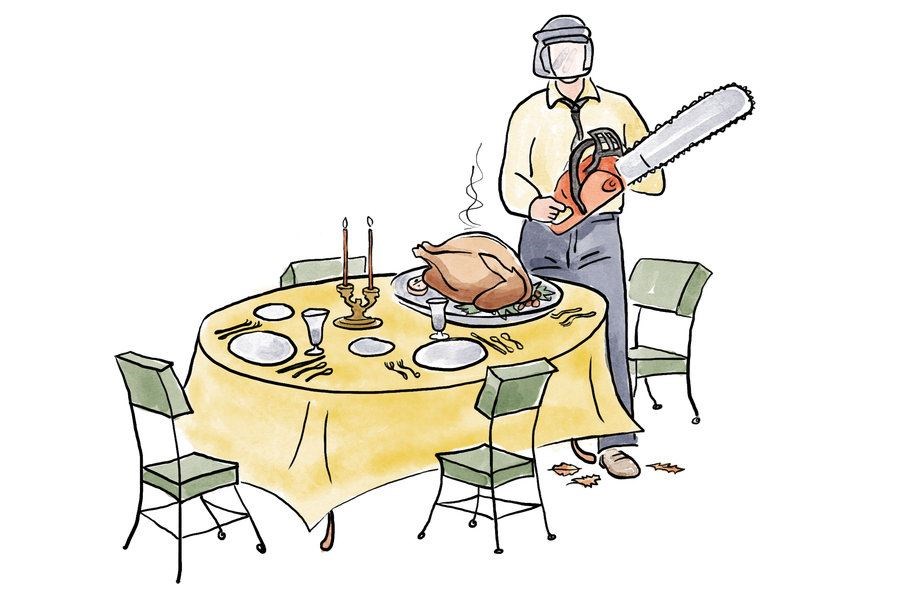 Karen Norris/StaffKaren Norris/StaffBut there’s making Thanksgiving possible, and there’s flat-out saving Thanksgiving – which means saving us from the two kinds of potential disasters that are dreaded above the rest, the kinds of disasters that threaten family comity, personal reputation, and emotional survival (as well as one’s Instagram feed). They are when the drain won’t flow, and when the bird won’t cook.
Karen Norris/StaffKaren Norris/StaffBut there’s making Thanksgiving possible, and there’s flat-out saving Thanksgiving – which means saving us from the two kinds of potential disasters that are dreaded above the rest, the kinds of disasters that threaten family comity, personal reputation, and emotional survival (as well as one’s Instagram feed). They are when the drain won’t flow, and when the bird won’t cook.
For 15 years, the Roto-Rooter Services Co. – a national drain-cleaning chain headquartered in Cincinnati – has tracked customer demand. “And on the Friday after Thanksgiving, business jumps 50%, year after year without fail,” says company spokesman Paul Abrams. “Thanksgiving Day is busy, too, but people assume they’re going to pay through the nose on Thanksgiving – they’re wrong by the way, rates are the same – so they tough it out until the day after.” Unless they have guests, in which case the cavalry can never come soon enough.
“But we’re just the back end of the process,” says Mr. Reef. The front end – the very front end – is the food. “And even us plumbers know,” says Mr. Reef, “that as bad as our disasters are, blowing the meal is worse.”
Thankfully – are you noting a theme here? – there are people who can save us from that particular disaster, too.
In a quiet corner of Naperville, Illinois, is a large, unremarkable office floor, “about the size of a basketball court,” that on Thanksgiving Day is the opposite of quiet. It is the home of the Butterball Turkey Talk-Line (that’s 1-800-BUTTERBALL, to you), which for its 39th year will again come to our collective, last-second, meal-making rescue.
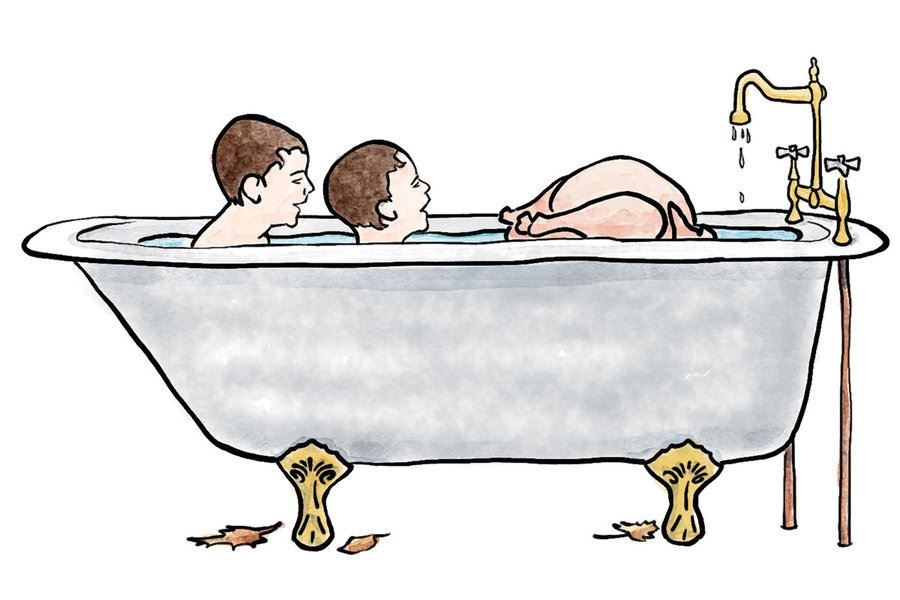 Karen Norris/StaffKaren Norris/StaffThere are other cooking hotlines – from those by other turkey brands such as Jennie-O and Honeysuckle White, to ones addressing other menu niches (the Crisco Pie & Baking Hotline, the Sara Lee Desserts Pie Hotline, the Ocean Spray Holiday Helpline). There’s a U.S. Department of Agriculture meat and poultry hotline putting our tax dollars to work. And there’s even an excellent quick-response Q&A forum on Food52, the website launched by former New York Times Magazine food editor Amanda Hesser. “This is our Super Bowl!” says Food52 executive Suzanne D’Amato about the hotline on Thanksgiving Day.
Karen Norris/StaffKaren Norris/StaffThere are other cooking hotlines – from those by other turkey brands such as Jennie-O and Honeysuckle White, to ones addressing other menu niches (the Crisco Pie & Baking Hotline, the Sara Lee Desserts Pie Hotline, the Ocean Spray Holiday Helpline). There’s a U.S. Department of Agriculture meat and poultry hotline putting our tax dollars to work. And there’s even an excellent quick-response Q&A forum on Food52, the website launched by former New York Times Magazine food editor Amanda Hesser. “This is our Super Bowl!” says Food52 executive Suzanne D’Amato about the hotline on Thanksgiving Day.
But Butterball is the grande dame. On Thanksgiving Day, 50 cooking advisers will work the phone lines (and text screens and social media platforms), most of them talking at once. They’ll field more than 10,000 queries. Which surprises hotline director Nicole Johnson, since these days there’s no question the internet can’t answer.
What doesn’t surprise any of the Butterball veterans are the problems that callers confront them with, since by now there are none they haven’t heard.
For instance?
Q: My turkey has no breast meat! What do I do?
A: (In calm voice) Turn it over.
Q: My oven’s too small, so I used a hammer to shatter all the bones and crush the bird into a lump – that’s OK, right?
A: OK in theory. Just be careful carving. And don’t get your hopes up about presentation.
Q: I sliced my bird in half with a chain saw – will the engine oil be a problem?
A: That would be yes.
Q: I found a turkey in a freezer unopened since 1969. Can I eat it?
A: That would be no.
Q: My bird barely fits inside my oven – will it rise too much for me to get it out?
A: Turkeys don’t rise.
Q: I forgot to remove the plastic shrink-wrap before I roasted it. What now?
A: Do you have another bird?
Q: I scrubbed my raw turkey with a toothbrush dipped in bleach for three hours. Is that enough to kill the harmful bacteria?
A: Not sure.
Bonus A: But if you eat it, it could kill you.
And then there’s the No. 1 most often-asked question: How do I find out when my turkey is done? The only acceptable answer: with a thermometer. You can’t tell if a turkey is done by looking at it. Or by twisting its leg. Butterball advises that a turkey is done when the thermometer reads 180 degrees Fahrenheit deep in the thigh, and 165 degrees in the center of the stuffing, if the turkey is stuffed.
Or there’s the other most often-asked question: I forgot to thaw my turkey – how can I thaw it now?
A: For starters, not in a hot tub, or with a hair dryer, or in the bathtub with your twins, all of which have been tried more often than you’d imagine. (“People are a hoot!” a hotline veteran once delightedly told an interviewer.) Butterball operatives cite the USDA recommendation: Soak the turkey, bagged, in cold water for 30 minutes per pound of bird, changing the water every 30 minutes as you go. All of which sounds like the best possible reason for remembering to do your thawing right in the first place, by giving your bird a day in the refrigerator for every 4 or 5 pounds of its weight.
Phew. Are we poking fun? No, we are not. On account of we live in a pretty glassy house ourselves. There was the year I decided to “burnish” our turkey by roasting it draped in a fat-soaked cheesecloth (it was a thing, I’m telling you), only to annoy the neighbors with fire alarms and smoke that sent our visitors into the subfreezing yard.
And the year I forgot to buy a roasting pan and had to fabricate one from tinfoil and cookie sheets (another fail, more turkey drippings on the oven floor, more smoke). As well as the year when our own complaining sewer system resulted in a “situation,” as my then 8-year-old niece called it; we and our houseguests spent half of Thanksgiving fervently watching two unfortunate drain pros interrogate our holding tank, their quilted coveralls and woolen balaclavas providing far too little protection against the unbroken Northwest wind. What had we done wrong? I still don’t know. I’m not sure I want to.
(But to both of those gentlemen, wherever they are: Thank you, more than I can say.)
As a public service, we should point out that the people who save Thanksgiving have thoughts about all this – countermeasures, let’s call them – which mostly amount to advice about how we can forestall our disasters in the first place (before they become their disasters).
Even Roto-Rooter, whose revenues rise with our troubles, doesn’t hesitate to educate about how to keep those troubles at bay. “Funny thing,” says Mr. Abrams, in the Cincinnati headquarters, “at first we were afraid that sharing all the preventative info would undercut our business – but, nah, never happened.”
Nowadays, locate any plumbing company that hosts a blog and you’ll find a treatise about how to avoid Thanksgiving disasters. Read enough of them, and they start to feel like a collective plea. Please don’t pour the turkey fat down the sink. Please keep an eye on those houseguests “just trying to help” with cleanup. Please, please, please don’t mistake your garbage disposal for a trash can. And don’t mistake your toilet for a garbage disposal, either, in case you need reminding. (See above.)
In Rochester, Minnesota, Norm Autry tells us that although we should use a lot of running water when using the garbage disposal, “running the faucet for 15 minutes does not rinse that pipe. A garbage disposal is an appliance of convenience, but if not used properly it will come back to bite you.”
In Newfoundland, New Jersey, Mark Lindsay gets more specific: “Pour any excess grease from turkey or roast pans into a disposable container and let it congeal; then discard the container in the trash.” Here’s his list of what not to put in your garbage disposal:
• Bones.
• Celery, pumpkin or potato flesh, or other fibrous foods.
• Coffee grounds.
• Eggshells.
• Fruit pits.
• Pasta.
• GREASE (capital letters, his).
And in Charlotte, North Carolina, Dave Parker reminds us that “lots of guests means lots of flushing. Save your guests the embarrassment of asking for a plunger – just in case – and leave one in plain sight near the toilet. And consider a friendly-worded ‘do not flush’ list as a reminder to guests (baby wipes, Q-tips, floss).”
The cooking advisers are a little less desperately prescriptive. (Except, really, get that turkey out of the freezer and into the fridge on Saturday, not Thursday, we’re begging you.) Most of the advice about disaster avoidance in the kitchen might be summarized like this: Don’t experiment. Just don’t. Thanksgiving is not the moment to try fat-basted cheesecloth on your bird to prevent it from drying out. Or to top that side dish of portobellos with some new recipe’s suggestion of pepper, paprika, and cayenne. And do not decide that you’ve fallen in love with the word “spatchcock” and that this is the day to make it happen. Put down the cleaver. This is not that day.
All good advice, no? Of course we won’t follow it. Or many of us won’t, at least. Sure, an ounce of prevention is worth a pound of cure, but this is America. Live now, fix later.
So the people who save Thanksgiving for us will have to keep saving it.
Which, for them, isn’t all bad. As Roto-Rooter’s Mr. Abrams doesn’t hesitate to note, “A plumber can make a lot of money on Thanksgiving.”
Money’s good. Given the price they pay to get it, though – the lost family time, the disastrous conditions (literally), the obliteration of other things that go along with Thanksgivings – it’s a good thing that the people sacrificing their own holidays in order to rescue ours get something else, too. Something better.
“Oftentimes,” reflects Mr. Reef, the water heater stockpiler, “being a plumber is pretty thankless, I won’t lie. But not on Thanksgiving.” Doesn’t matter how long the hours are, or how frustrating the challenges, or how severely you suffer from an entirely understandable case of “FOMO” (fear of missing out), he says, “Thanksgiving is rewarding. People are so, so happy to see you when you show up.
“On Thanksgiving, you get to be the hero.”
And if that’s not enough, you get to feel connected, too. “It’s the day you get to really feel those intimate relationships with customers that we miss on a day-to-day basis,” Mr. Reef says.
Says Food52’s Ms. D’Amato, of her company’s all-staff effort to answer any posted query in 10 minutes or less: “It’s all hands on deck, but it’s fun, too. Everyone at Food52 comes together to make this a really special experience for our community. ... It’s full-on, but it’s also so rewarding to help people and be there for them.” The secret sauce, though, isn’t always the advice, she says. “It’s about just supporting people and easing their anxieties: ‘So your meal may not turn out perfect – it’s OK! Mine may not either.’ It’s about being in it together.”
At Butterball, too, it’s not the goofy questions that the staffers like to talk about the most. It’s the feeling of being there on a day when things are happening that might be remembered forever: when someone who has just lost a lifelong partner now has to cook alone and doesn’t know how; when young newlyweds are nervously hosting their first Thanksgiving and can’t figure out the gravy; when recent immigrants reach out because they so want to get this new tradition – their new tradition – exactly right.
It’s the feeling of being in service. And anyway, what’s better – to receive gifts, or to have them to give?
“Honestly,” says Mr. Reef, “holidays really do bring out the best in people.” The work is hard, sure, but what a difference you can make. What gratitude you’re met with. “And the food! People are so relieved and happy, they keep feeding you at every stop. And the food is so great!
“Only thing is,” he says, “by the end of the day you’re too full to eat a Thanksgiving meal of your own.”
But don’t worry, he adds, starting to laugh. “It’s nothing we can’t handle.”
Page created on 11/27/2019 6:25:05 AM
Last edited 11/27/2019 6:44:39 AM
